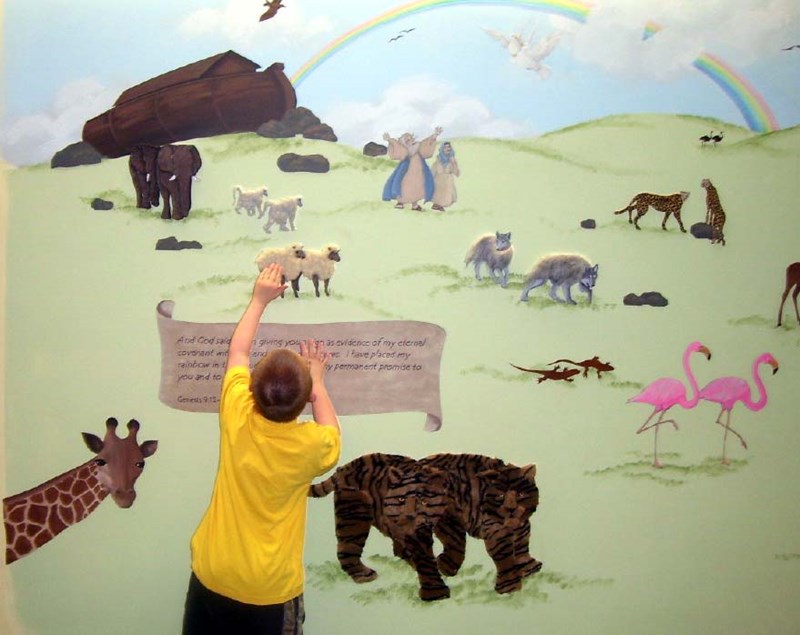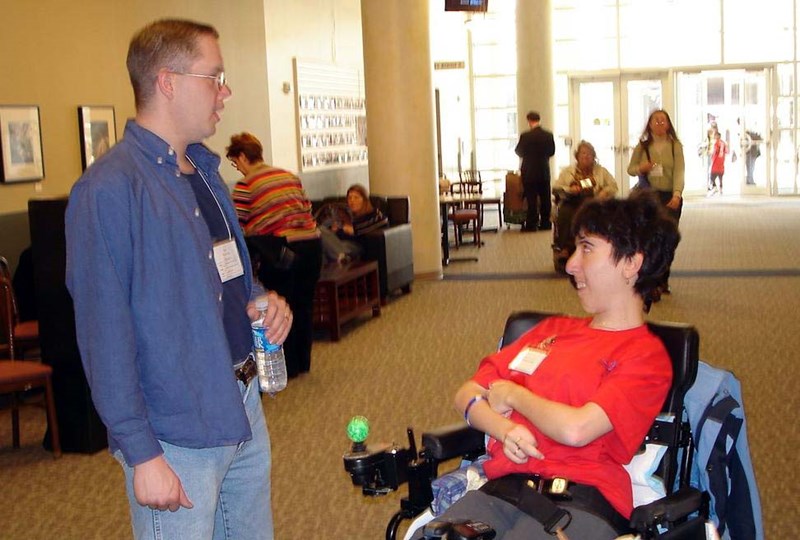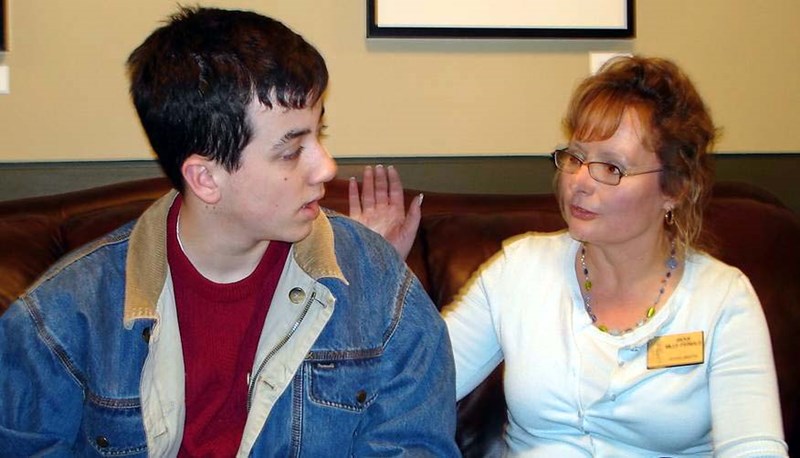Special needs ministries reach those 'dear to the heart of God'
VIENNA, Va. (BP)--In 1998, the church Janet Long attended had no place for her only son Gordon, who has autism.
“We were about ready to quit church before we came here,” said Long, who has attended the McLean Bible Church since then.
Gordon, now 14, was completely non-verbal when he began attending the Access Ministry for special needs at the church, located in the Washington-area suburb of Vienna, Va. Today, Gordon has some language, plays hockey in a special league and participates actively in the Beautiful Blessings Sunday School class.
“We were told he couldn’t do any of those things,” Long said. “He’s happy. He loves coming to church. His grandparents got to see him up on a stage for the first time when he was 8. He wasn’t singing, but he was there with the other kids.”
Long attends a support group offered by the Access Ministry, which is especially poignant because she lost her husband to thyroid cancer three years ago and might not have had a church family without the special needs ministry.
Access Ministry director Jackie Mills-Fernald, underscoring the need to embrace the disability community with open arms, said, “We are the hands and feet of Christ.
“Jesus spent His time here on earth with the disenfranchised, lame, sick, blind, deaf and mentally ill, an outreach ministry very near and dear to the heart of God,” Mills-Fernald said at McLean Bible Church’s seventh annual Accessibility Summit.
By extension, she said, the church should use Jesus’ example for how it operates -- where the doors are flung open and everyone is assured that with God all obstacles can be overcome, she said.
The yearly Accessibility Summit aims to provide inspiration, information and training workshops on disability issues such as homeschooling, financial planning, the latest rehabilitation equipment, special needs of non-disabled siblings and advice on how to start a disability ministry.
Conference speaker Jim Pierson, president of CCFH Ministries (The Christian Church Foundation for the Handicapped) based in Knoxville, Tenn., said 40 years ago churches didn’t do much outreach to people with special needs and parents were advised to institutionalize their children who were born with a disability.
“Many families listened to that advice, but then they missed the joy of seeing a person embrace faith –- [and do so] in a way that makes ours look bad,” Pierson said.
“It’s hard to find sometimes, but lots of wonderful things are going on,” he said of the growth of disability ministries over the years. People are able to go to church, no matter how severe their family member’s disability, he said.
“Jesus touched the eyes of people who couldn’t see, the ears of people who couldn’t hear. He made mentally ill people well. We want to duplicate that in our ministries,” Pierson said.
“We want people who walk though the front door of the church to feel welcomed,” he continued, offering a key word of counsel: “Be sure your philosophy is clear. The reason for any program in the church is to teach people about the love of Jesus. Period.”
He added: “There’s no footnote in John 3:16.”
While special needs ministries usually are started by people who have been touched by a disability, Mills-Fernald said they usually do not get off the ground unless senior church leadership is on board.
Such was the case at McLean Bible Church, where senior pastor Lon Solomon has a daughter with a severe seizure disorder.
Access Ministry was started 10 years ago when the church had three families with children with identified special needs.
At the time, one teenage girl had been staying in a large coat closet playing with puzzles while her mother attended worship. Volunteers would help with the others who came to the church.
Back then, the church had about 1,500 members; today, the sprawling campus in northern Virginia serves 13,000. Nearly 700 church families have a member with a disability. Mills-Fernald said 300 of the families are touched by the Access Ministry on a regular basis, while others might take advantage of the respite care or other services only occasionally. When Access began, it had a budget of $2,000. Today, it is $56,000, not including 11 full- and part-time staff salaries.
The Accessibility Summit, an outgrowth of the Access Ministry, began seven years ago with 30 people in attendance. This year, more than 700 caregivers, family, community and church members representing any number of denominations from 27 states at the March 24-25 conference.
According to statistics compiled from various sources for the summit, 54 million people in the United States have a physical, intellectual, emotional or sensory disability. It is a segment of the population that is predominantly unreached for Christ.
Financial and emotional pressures often are intensified by the birth of a child with special needs. Many families face insufficient insurance coverage -- or no coverage at all -- for a child with special healthcare needs, while parents often cut back or stop working to care for their child.
Mills-Fernald said some estimates are that four out of five marriages with a child with a disability end in divorce. Others put that number at 65-72 percent but, either way, it’s a higher than average divorce rate. That’s one reason couples should be able to worship together, she said, rather than “tag-team” or not attend services because there is no nurturing place for their child with special healthcare needs. Unchurched or not, only a small minority of the population with a disability claims to be Christian, Mills-Fernald said.
Accessibility Summit leaders said ministry to such families is an untapped mission field that can transform churches as well as lives. Placing an emphasis on eliminating physical, emotional and educational barriers is vital for the health of the church -– especially since the disability community is growing at three times the rate of the “typical” population. Autism, for instance, once appeared at a rate of two in 10,000, Pierson said; today that ratio is one in 166 births.
“We need to give voices and choices to people with disabilities,” Mills-Fernald said. “That means worship and service.” She attributes the phenomenal growth among special needs families at McLean Bible Church in large measure to the attitude and atmosphere that has fostered the involvement of more people through Access Ministry.
“Parents hear five days a week what their child cannot do,” she said. When they come to church, she counseled potential ministry leaders and volunteers to at least start out with what the child did well.
The church should not limit itself to a children’s ministry, she said, because people need opportunities for spiritual growth and meaningful service throughout their lives.
In fact, a plan to create a special needs ministry might not work without first inviting adults with disabilities to serve in the church, she said. They can serve as greeters, for example, but it’s not just a matter of people in wheelchairs passing out bulletins, Mills-Fernald said, emphasizing, “There are no mistakes from God.”
-












